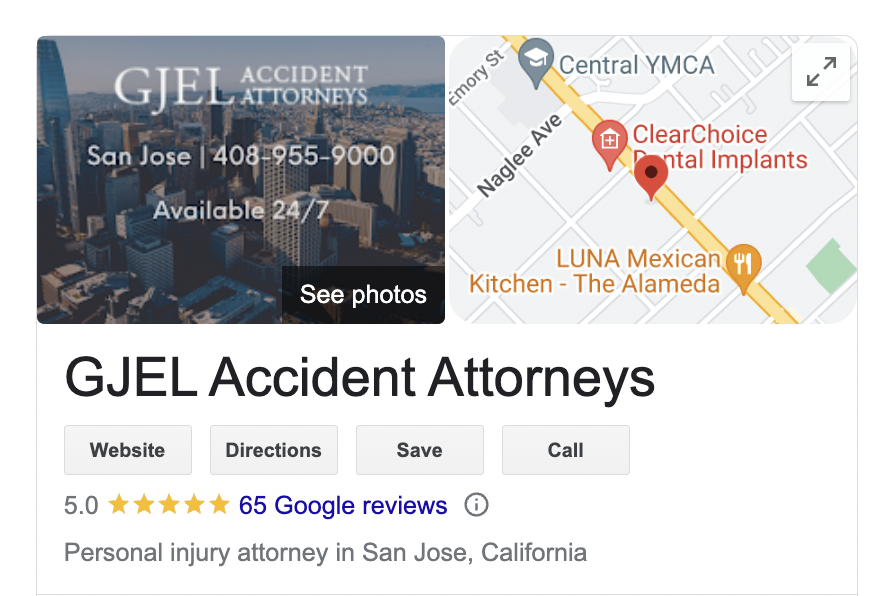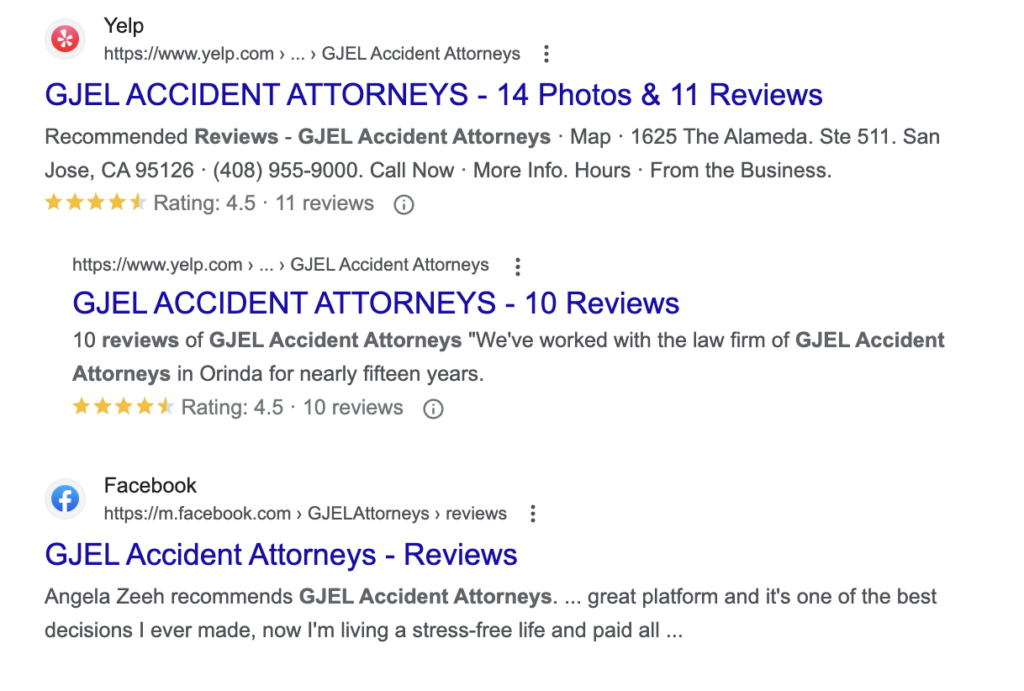We’re here today to shed light on a pivotal, yet often overlooked facet of your law firm’s digital marketing strategy – online client reviews.
Now, it’s no secret that reviews matter. However, the extent of their influence might surprise you.
Indeed, a significant number of potential clients are scrolling through reviews before they even think about dialing your number or drafting an email to your firm.
You might be wondering, just how many people are scrutinizing these reviews? Or how they’re searching for your firm and the attorneys in it and where you should concentrate your efforts to get the best return on investment?
Well, you’re in luck. We’ve crunched the numbers and explored the digital landscape to bring you a comprehensive guide on this very topic.
So let’s dive in.
What Percentage of Clients are Looking at Your Reviews?
In today’s digital era, the power of reviews cannot be overstated. A staggering number of potential clients are scrutinizing your online reviews before making the critical decision to engage your services.
According to a study conducted by reputation.com, an overwhelming 88% of consumers read reviews before making a purchase decision. Further reinforcing this trend, Global Newswire reports that a nearly unanimous 95% of customers read online reviews before making a purchase.
This information aligns seamlessly with a study Juris Digital conducted back in 2016, which revealed that the top factor clients looked for in an attorney before hiring was the attorney’s reputation. Even years ago, clients were paying close attention to what others had to say about your legal services, and this trend has only grown stronger.
These figures underscore just how vital it is to maintain and elevate your online reputation to stand out in the highly competitive legal landscape.
Needless to say, your potential clients are turning online to research you before they hire you. So where are they looking and what are they looking for?
Where Your Clients Are Researching Your Reputation
So, where exactly are your potential clients investigating your firm’s reputation?
The primary destination for most people is, unsurprisingly, Google. As the world’s dominant search engine, Google is the go-to platform for consumers seeking information. When a prospective client types your law firm’s name into the search bar, it’s typically the Google Business Profile (GBP) that appears first.

This profile, complete with reviews and ratings, plays a decisive role in shaping your online image, and is therefore a crucial area to focus your reputation management efforts.
However, while Google is undoubtedly a key player, it’s not the only platform that matters.
Legal directories and local business directories also rank highly for critical keywords relevant to your practice. These directories, such as Super Lawyers, FindLaw, Trustpilot, Facebook and even Yelp, often come up in search results when potential clients are searching for legal services.

As such, these sites are important touchpoints on the path to client conversion and cannot be overlooked in your reputation management strategy.
To discover these opportunities, you should be regularly searching key terms relevant to your practice and location to see which platforms rank high. Aim to cultivate positive reviews on these platforms to reinforce your firm’s favorable image.

An ambitious and practical goal for your law firm should be to ‘own’ the search results for your firm and the attorneys within it. This means when someone searches for “[Your Name] + reviews,” they are greeted with a chorus of positive feedback.
Taking control of your online reputation in this way can significantly boost your credibility and trustworthiness, leading to increased client conversions.
Focusing your efforts on these search results doesn’t just help paint your firm in a positive light, but it also guards against any potential negative comments.
A consistent flow of positive reviews on Google, legal directories, and local business directories ensures that potential clients see the very best of what your firm has to offer. Remember, your online reputation is often the first impression a potential client gets of your firm, so make it count!
Your Action Items Here:
- Google search for important keywords like “Car Accident Lawyer” and see which directories rank. Get listed here and make sure your reviews are solid.
- Google search for your law firm and all attorneys in your firm. See who ranks on the first page and prioritize making sure these are all positive for your firm and the attorneys. [Pro Tip: Regular reviews help you rank better and it’s a great local SEO tactic].
- Update your firm strategies and business plan to ensure review collection is a priority for all team members.
Tips to Add Trust
I think it goes without saying that if an potential client of yours is visiting your website they are likely leaving your website at some point before contacting you to get an idea of your reputation. While this could happen BEFORE they search for you I like to prepare for the worst and assume it happens after the fact.
That means you can do more ON your website to add trust. Here are some tips to do this:
- Add a widget or social proof that links to live Google reviews right on your website
- Integrate Google reviews with stars and client photos into the design of your website (CRO)
There are a lot of things you can do to help mitigate this, but it’s important to think about all of the possible buyer journeys.
I hope now you understand the importance of reviews. In our next series we will talk about ways attorneys can get reviews on a regular basis that build trust and also help with local pack rankings.
